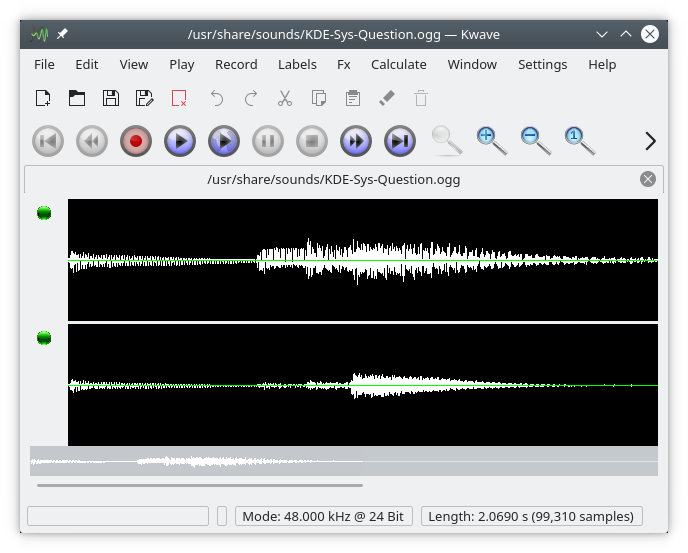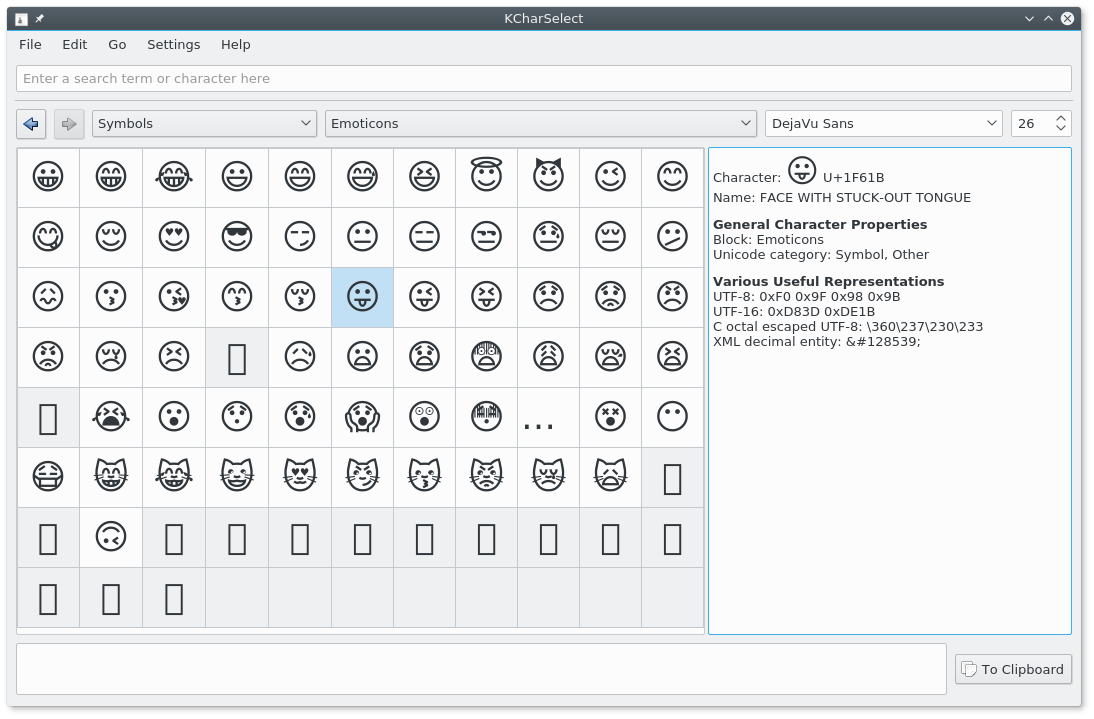KDE wydało Aplikacje KDE 16.12.0
December 15, 2016. Today, KDE introduces KDE Applications 16.12, with an impressive array of upgrades when it comes to better ease of access, the introduction of highly useful functionalities and getting rid of some minor issues, bringing KDE Applications one step closer to offering you the perfect setup for your device.
Okular, Konqueror, KGpg, KTouch, Kalzium and more (Release Notes) have now been ported to KDE Frameworks 5. We look forward to your feedback and insight into the newest features introduced with this release.
In the continued effort to make applications easier to build standalone, we have split the kde-baseapps, kdepim and kdewebdev tarballs. You can find the newly created tarballs at the Release Notes document
We have discontinued the following packages: kdgantt2, gpgmepp and kuser. This will help us focus on the rest of the code.
Edytor dźwięku Kwave dołącza do Aplikacji KDE!

Kwave is a sound editor, it can record, play back, import and edit many sorts of audio files including multi channel files. Kwave includes some plugins to transform audio files in several ways and presents a graphical view with a complete zoom and scroll capability.
The World as your wallpaper

Marble now includes both a Wallpaper and a Widget for Plasma that show the time on top of a satellite view of the earth, with real-time day/night display. These used to be available for Plasma 4; they have now been updated to work on Plasma 5.
Więcej informacji można znaleźć na blogu Friedricha W. H. Kossebau.
Mnogość emotikon!

KCharSelect has gained the ability to show the Unicode Emoticons block (and other SMP symbol blocks).
It also gained a Bookmarks menu so you can favorite all your loved characters.
Math is better with Julia

Cantor has a new backend for Julia, giving its users the ability to use the latest progress in scientific computing.
Więcej informacji można znaleźć na blogu Ivana Lakhtanov'skiego.
Advanced archiving

Ark has several new features:
- Files and folders can now be renamed, copied or moved within the archive
- It's now possible to select compression and encryption algorithms when creating archives
- Ark can now open AR files (e.g. Linux *.a static libraries)
Więcej informacji można znaleźć na blogu Ragnara Thomsena.
I więcej!
Kopete got support for X-OAUTH2 SASL authentication in jabber protocol and fixed some problems with the OTR encryption plugin.
Kdenlive has a new Rotoscoping effect, support for downloadable content and an updated Motion Tracker. It also provides Snap and AppImage files for easier installation.
KMail and Akregator can use Google Safe Browsing to check if a link being clicked is malicious. Both have also added back printing support (needs Qt 5.8).
Aggressive Pest Control
More than 130 bugs have been resolved in applications including Dolphin, Akonadi, KAddressBook, KNotes, Akregator, Cantor, Ark, Kdenlive and more!
Pełny dziennik zmian
Pełną listę zmian można znaleźć tutajGłoś słowo
Non-technical contributors are an important part of KDE’s success. While proprietary software companies have huge advertising budgets for new software releases, KDE depends on people talking with other people. Even for those who are not software developers, there are many ways to support the KDE Applications release. Report bugs. Encourage others to join the KDE Community. Or support the nonprofit organization behind the KDE community
Please spread the word on the Social Web. Submit stories to news sites, use channels like delicious, digg, reddit, and twitter. Upload screenshots of your new set-up to services like Facebook, Flickr, ipernity and Picasa, and post them to appropriate groups. Create screencasts and upload them to YouTube, Blip.tv, and Vimeo. Please tag posts and uploaded materials with “KDE”. This makes them easy to find, and gives the KDE Promo Team a way to analyze coverage for this KDE Applications release.
Wgrywanie pakietów binarnych Aplikacji KDE
Pakiety
Niektórzy z dostawców systemów Linux/UNIX uprzejmie dostarczyli pakiety Aplikacji KDE dla niektórych wersji swoich dystrybucji, a w pozostałych przypadkach, zrobili to wolontariusze ze społeczności. Pakiety binarne, a także uaktualnienia, mogą stać się dostępne w nadchodzących tygodniach.
Położenie pakietów
Po bieżący wykaz dostępnych pakietów binarnych, o których Projekt KDE został powiadomiony, odwiedź Wiki Społeczności.
Budowanie Aplikacji KDE
Pełny kod źródłowy aplikacji KDE można pobrać nieodpłatnie z](https://download.kde.org/stable/applications/16.12.0/src)Polecenia do zbudowania i wgrania Aplikacji KDE są dostępne na 16.12.0 stronie informacyjnej Aplikacji KDE
Wspieranie KDE
KDE is a Free Software community that exists and grows only because of the help of many volunteers that donate their time and effort. KDE is always looking for new volunteers and contributions, whether it is help with coding, bug fixing or reporting, writing documentation, translations, promotion, money, etc. All contributions are gratefully appreciated and eagerly accepted. Please read through the Supporting KDE page for further information or become a KDE e.V. supporting member through our Join the Game initiative.
O KDE
KDE is an international technology team that creates free and open source software for desktop and portable computing. Among KDE’s products are a modern desktop system for Linux and UNIX platforms, comprehensive office productivity and groupware suites and hundreds of software titles in many categories including Internet and web applications, multimedia, entertainment, educational, graphics and software development. KDE software is translated into more than 60 languages and is built with ease of use and modern accessibility principles in mind. KDE’s full-featured applications run natively on Linux, BSD, Windows, Haiku, and macOS.
Uwagi do znaku towarowego.
KDE® oraz logo Środowiska Pulpitu K® są zarejestrowanymi znakami towarowymi KDE e.V..
Linux jest zarejestrowanym znakiem towarowym Linusa Torvaldsa. UNIX jest zarejestrowanym znakiem towarowym Otwartej Grupy w Stanach Zjednoczonych i innych państwach.
Wszystkie pozostałe znaki towarowe i prawa autorskie z tego ogłoszenia są własnością ich odpowiednich właścicieli.
Kontakt dla prasy
Po więcej szczegółów wyślij nam wiadomość: press@kde.org